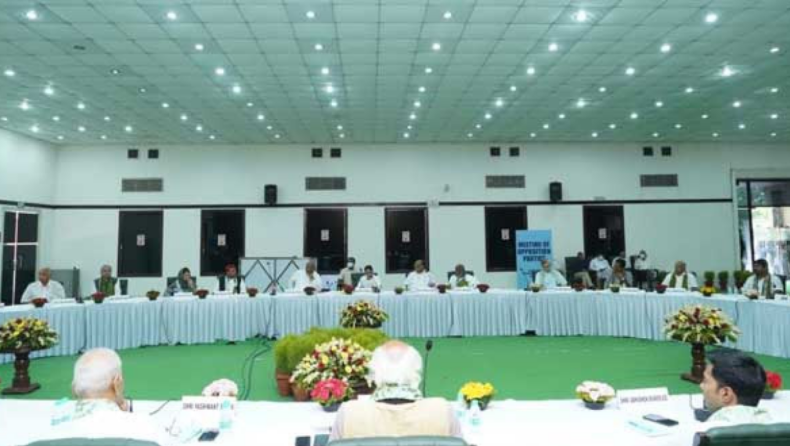
NEW DELHI: Following Sharad Pawar and Farooq Abdullah, Gopalkrishna Gandhi has ruled himself out of contention to be the united opposition candidate in the next Presidential Election.
“The opposition’s presidential candidate should generate national consensus. There will be others who will do this far better than I,” Gandhi stated while announcing his decision.
The opposition is now racing against the clock to nominate a joint candidate to take on the NDA’s nominee.
Nominations for the presidential election started on June 15 and will be accepted until June 29.
Selection process of presidential election
Members of the electoral college includes members of both Houses of Parliament, MLAs from all states. It includes the Union Territories of Delhi and Puducherry, which elects the president.
On June 15, Trinamool Congress head Mamata Banerjee submitted Abdullah and Gandhi’s names at a meeting attended by 17 opposition groups. According to PTI, the opposition expected to have its next meeting to settle on a united candidate on Tuesday.
According to an anonymous Trinamool Congress source, Non-Bharatiya Janata Party politicians are now considering former Union minister Yashwant Sinha as a joint nomination.
Abdullah withdrew his name as a possible joint opposition candidate. He claims that he had “a lot more active politics” ahead of him. He wants to help steer the Union Territory of J & K through the current “critical juncture.”
Sharad Pawar, who is the leader of the Nationalist Congress Party. He was considered to be the opposition’s top candidate. He had also turned down the invitation.
On the other hand, the NDA have the option of nominating either President Ram Nath Kovind or field vice-president M Venkaiah Naidu.
The Kerala Governor, Arif Mohammad Khan, is also rumored to be a candidate for the NDA’s nomination.
The BJP-led alliance expected to receive more than 48 percent of the vote. It is in an electoral college of approximately 10.86 lakh ballots.
It is hoping for support from non-aligned regional parties such as the YSR Congress and the BJD , during the presidential election.












